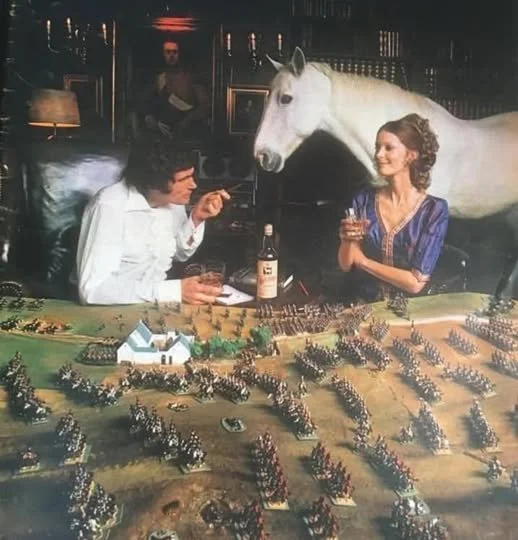TTS AAR: To The Smallest Game 3: Arab Conquest vs Ayyubid Egyptian
/My third game at this year’s To The Smallest 15mm To The Strongest competition was against Richard’s very nicely painted Ayyubid Egyptians.
The Ayyubids had a lot of cavalry available on the flanks, so my plan was once again to hold back on the wings whilst getting my infantry in the centre stuck in as soon as possible.
This I duly did, but without any great success. For some reason the cards had decided that they’d had enough of helping me out, and every single clash resulted in my troops going disordered!
Things continued that way for the rest of the game.
On the right flank, my cavalry moved up into a position where I could get a two to one advantage on one of the enemy units facing me, but the initial clash didn’t go my way to the extent that I ended up losing my cavalry general on that flank.
Now outnumbered, I needed to retreat to consolidate, but an unlucky Ace left me vulnerable. Unbelievably, however, the Egyptian cavalry failed to follow up, giving me time to get away, but the writing was on the wall and, a few turns later, that flank was definitively lost.
Things were not quite so bad on the left flank, where both sides had held back their troops to see what was happening elsewhere on the field.
When the clash did eventually occur, so did mutual self-destruction, with only one of my cavalry units surviving the melee.
So the game would be decided in the centre where, if you remember, the initial clash had not gone my way.
Things broke down into their usual (when using the Arabs) fragmented melee, but with my warbands suffering the effects of that initial clash.
Valiant efforts by the Daylami mountain tribesmen stemmed the tide of enemy troops flooding in from the right flank for a moment, but the loss of both of my foot generals meant that the writing was now on the walls!
The end of the game was very much a damp squib, with me just running out of coins as the attrition of the central melee combined with my losses on the wings took effect.
I had lost 11-16 (including three of my four generals) which showed that my men had been fighting hard if not successfully. A very frustrating game during which even Richard, my opponent, said that I had suffered the most appalling cards: not so much the usual surfeit of Aces, but more my men just not hitting or failing their saves during the general course of play.
But it was a game played in great spirits, and I look forward to a re-match some time in the future!






























